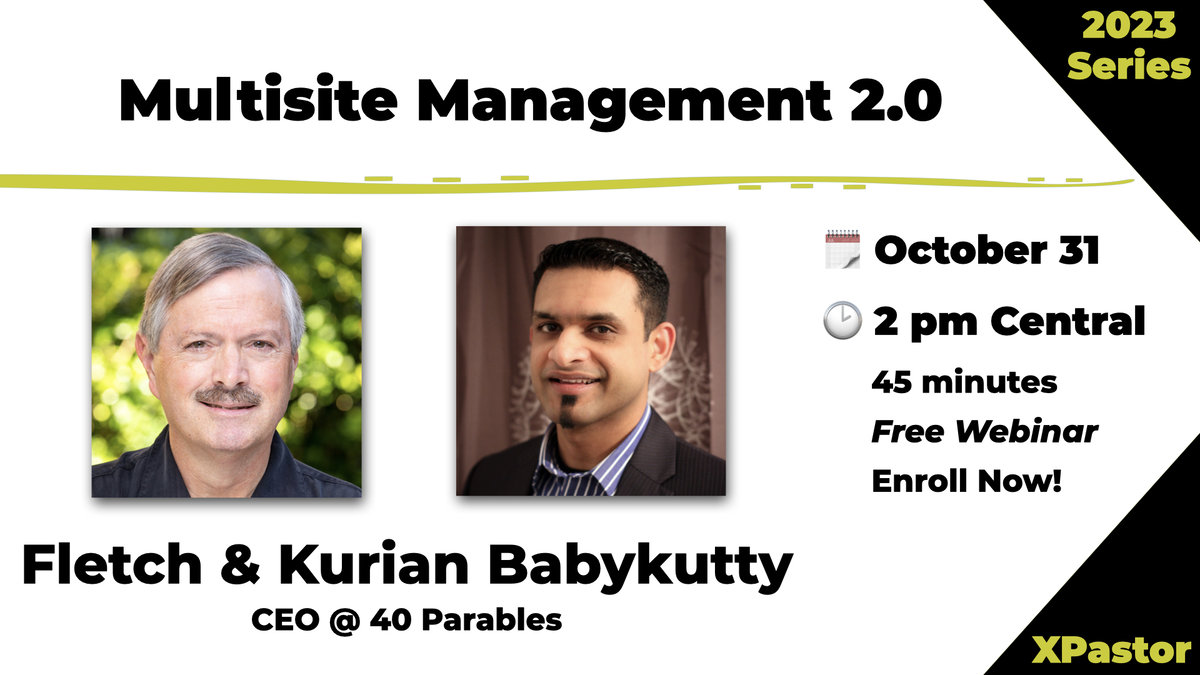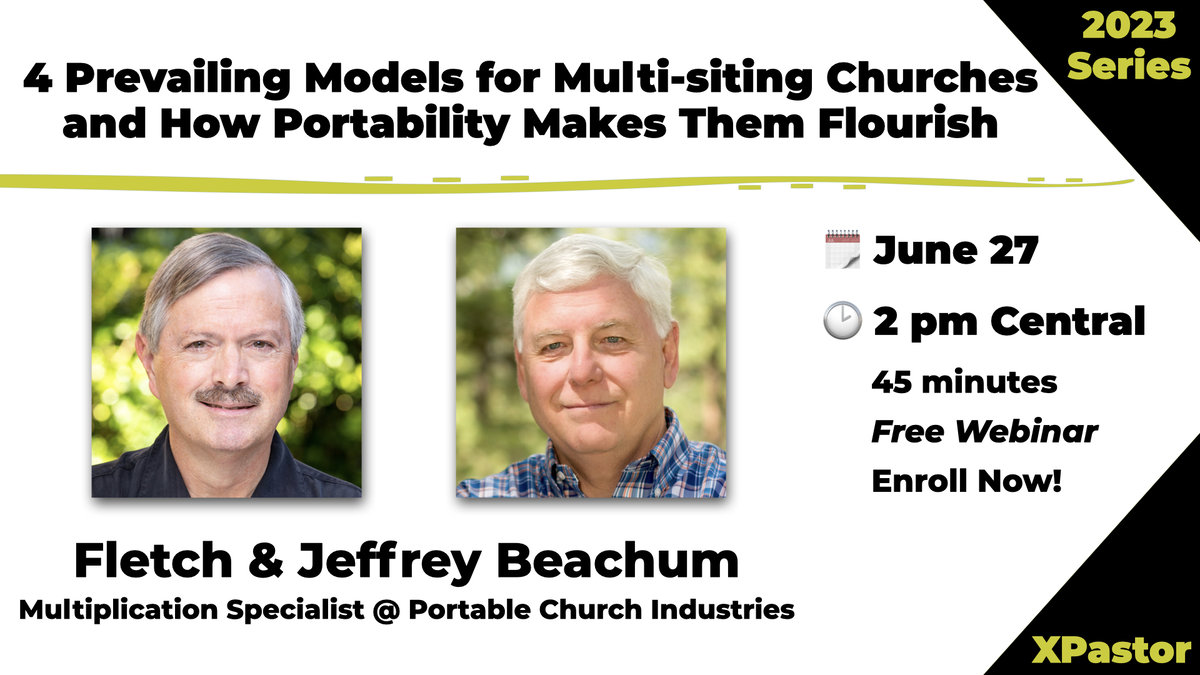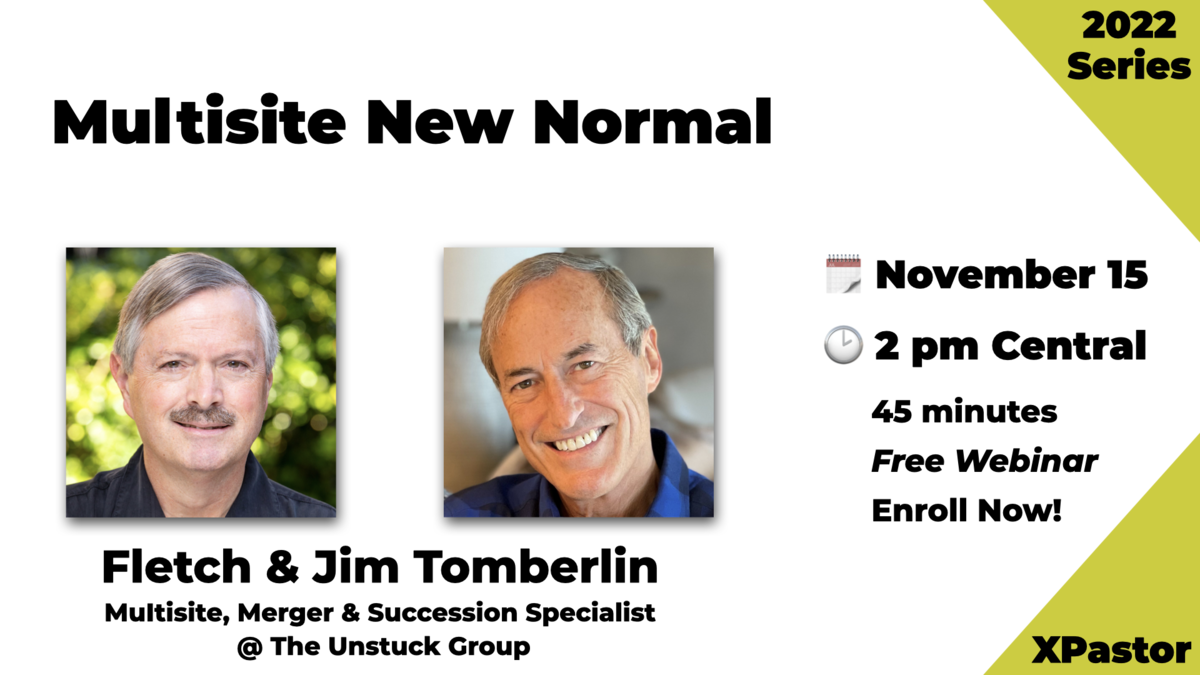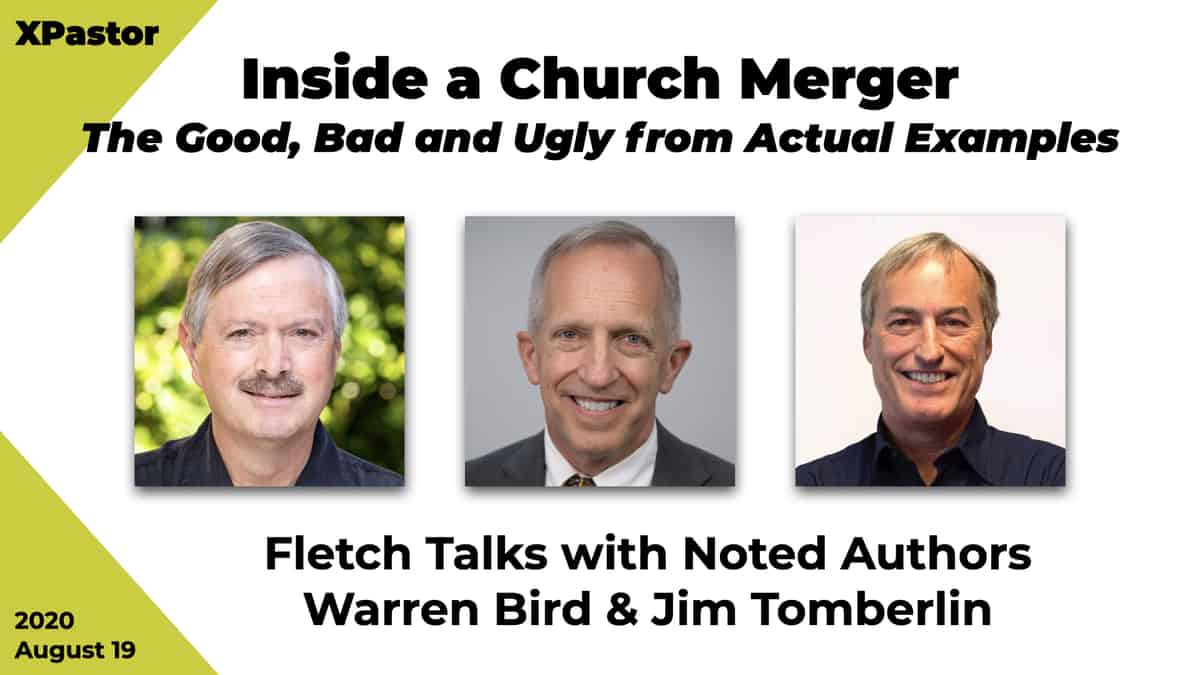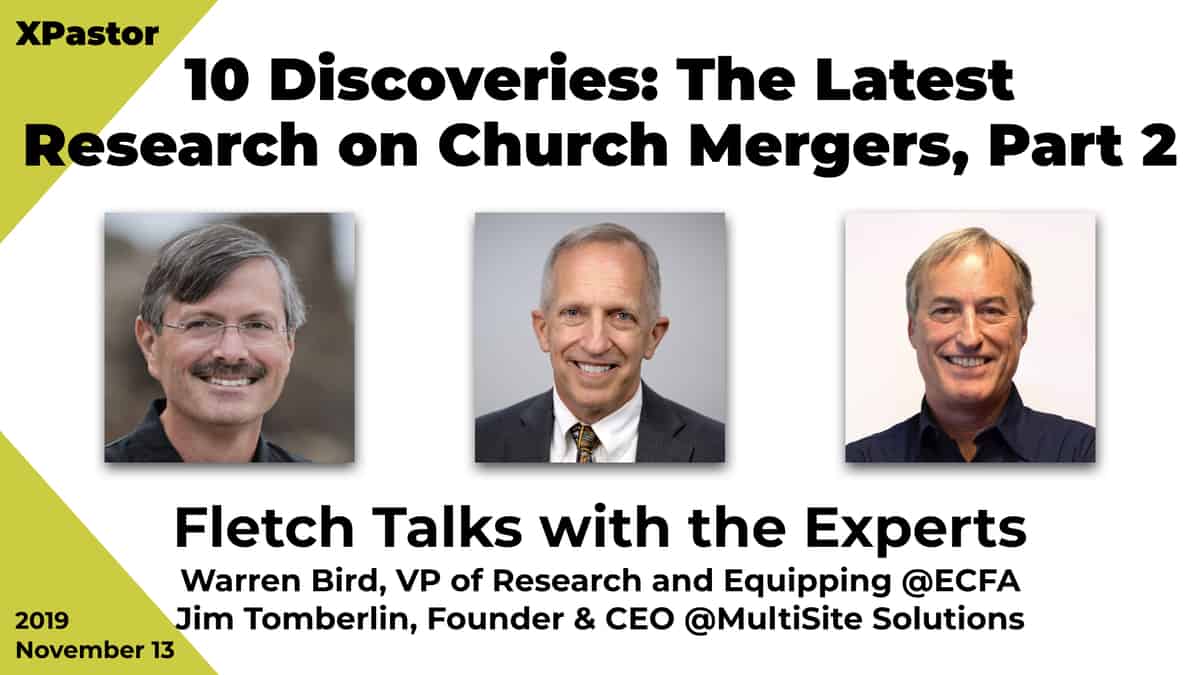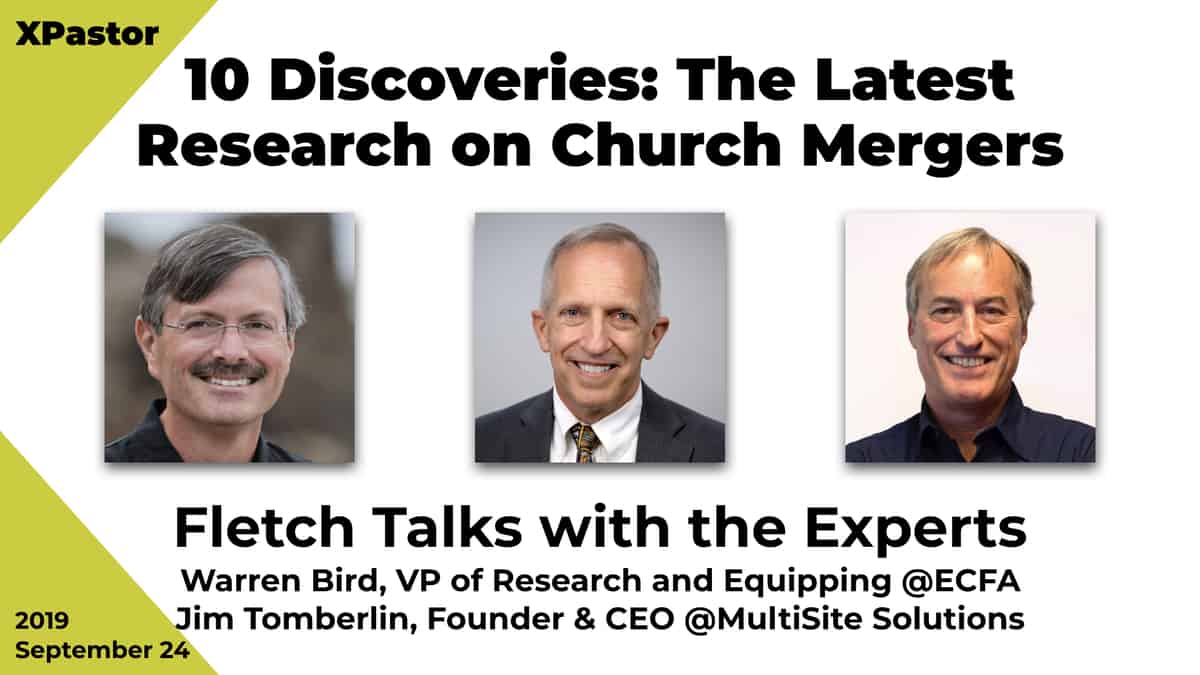Hey Fletch … Our church is talking about merging with another church. We would be the lead and adopt their church. We are a setup/teardown church, and they have a paid-off building. I’m working on what our budget will be, post merger. Since we don’t have a building, I am curious what line items to add. The ones I have thought of so far are maintenance, custodial, utilities, taxes, and increases for staffing and insurance. Are there other things that I should be considering?
Fletch—Let me start by giving a link to many articles on XPastor on church mergers. These articles will give you the big picture of mergers and lots of details too. I like your initial categories as they are a great start.
Many mergers require a significant capital outlay for initial renovation. If a church has been in decline, the property may need a facelift. This can run from painting to moving walls to redoing the stage. Make sure that you enhance curb appeal so that those driving by get a sense that something new is going on. This includes a new sign—invest well in signage. A cheap sign looks just that—cheap.
The worship tech of audio-visual, lights and live church broadcasting may need an upgrade. Many times churches fail to renovate bathrooms, which is a significant way to turn off guests. Carpeting may need replacement. The list can go on and on. Renovation and upgrade costs can begin at $500,000 and easily go up to $2 million.
For your future budget, you will have major capital expenses. Set up a fund that you can add to each year for replacing expensive items, such as HVAC units, roofs, major exterior painting and carpeting. Though we already talked about expensive audio-visual-lighting items, they will need more money in the next five to seven years.
Smart Church Solutions has a good facility benchmarking report. Tim Cool, their founder, and I have done a webinar on The 4 Buckets of Church Facility Budgeting.
Tim Cool and I did another webinar on What Are Capital Reserves and Why They Matter. Tim says:
Less than 40% of churches Smart Church Solutions have surveyed in our national benchmarking have a defensible plan for capital reserve planning. Capital renewals are inevitable expenses. Every component of your building has a life cycle.
Your plans sound interesting for the merger. Let me know how it goes!
Results
Hey Friend … From your website, it looks like you merged! What were some of the expected and unexpected costs? Can I include the following as an “add-on” to the article?
Friend—For sure! With all the help I’ve received from your ministry I’d love to be able to help in any way possible. We did merge. The Lord has blessed the whole process. Since it was our first time merging in this manner almost everything was unexpected.
Expected costs
- Legal fees
- Consolidation—moving offices to one location, breaking leases, etc.
- Accounting—paying to have their finances handled until the end of the year and tax statements sent out.
- Signage—the church we merged with had a building and we were keeping our name, so we had to pay for new signs both exterior and interior.
Unexpected costs
- Legal fees—there were some legal fees that we didn’t foresee being as much as they would be.
- Printer fees—because we couldn’t get out of a lease, we have two office printers now.
- Deferred maintenance—we knew there was some things that we would need to fix, but we didn’t anticipate the full scale.



